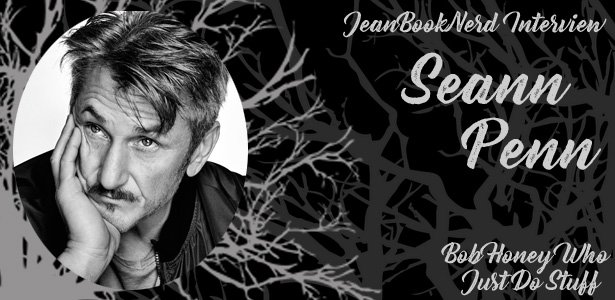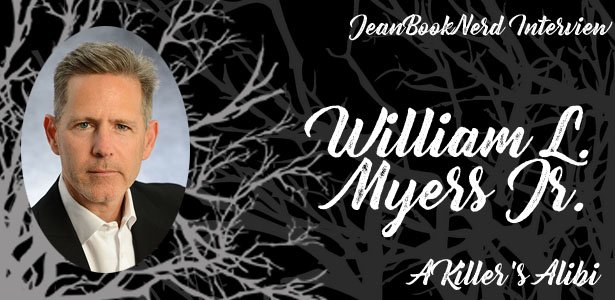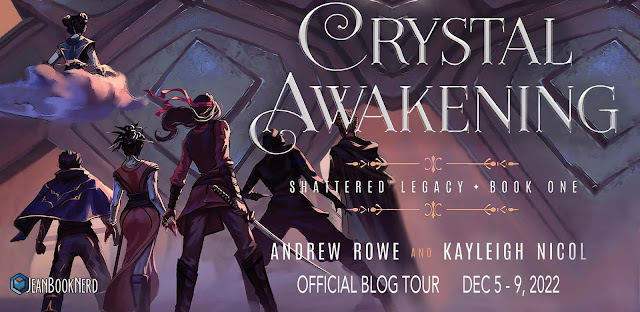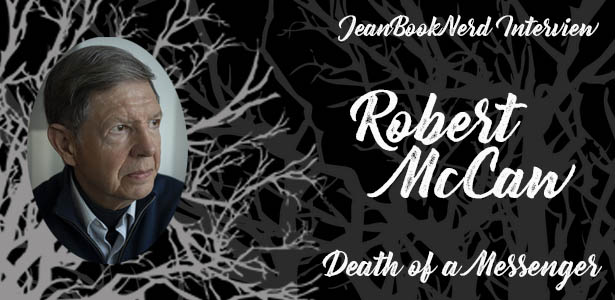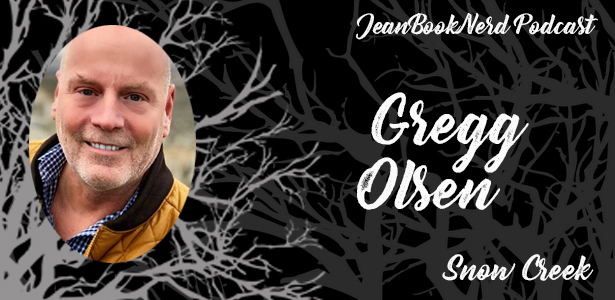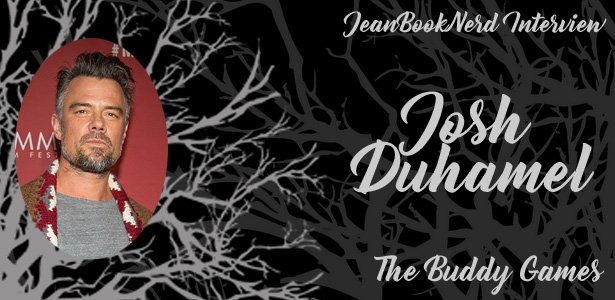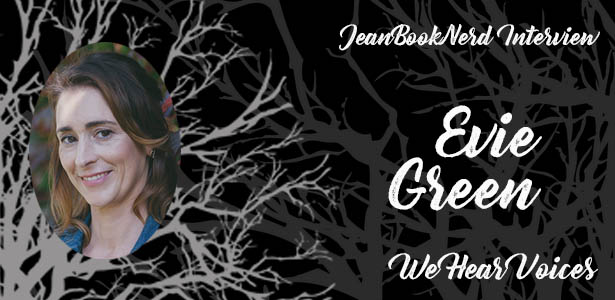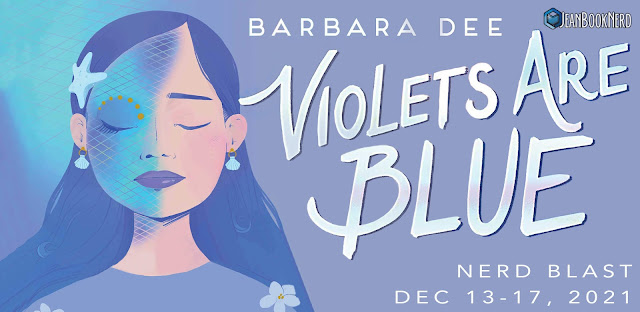Photo Content from George Dalphin
George Dalphin received a bachelor's degree in Studio Art from Indiana University at the age of 19. While there, he exhibited his artwork in a one-man show at the age of 16 and in the annual, juried Whitewater Regional Art Competition three years in a row, in two of which he had winning pieces.
At 18, he began making electronic music as Headphoneboy, and has thus far produced nine albums of original material as well as twenty-six mix albums of other artists' work uniquely married.
At 19, he began writing feature screenplays with Joe Foster, including X-COM:UFO Defense, Bridges and Tierra Del Fuego, and has written several on his own as well since then, including I Was Jesus and Dracula, which he directed, shot and edited in 2008, Doubting Thomas, which he directed, starred in and edited in 2010, and the scripts for his next two upcoming films: the short sci-fi drama Upload and the feature-length metaphysical anti-romance thriller Nobody. He has also written, directed and edited three films for the 48 Hour Film Project: Don't Be, "Payment"(which was an official selection at the 2010 SNOB Film Festival) andManifest Destiny.
At 24 George completed his first novel, Thirsty & Drowning, which is self-published, and he has just recently finished and released his second novel, the modern-fantasy adventure-comedy Bob Wacszowski, Necromancer.

Tell us your latest news.
This winter, I’m spending my weekends shooting my next short film: a science-fiction romance about identity-metaphysics, called Upload. The actors I’m working with are really great, and it should be my best-shot work yet, since I’ve recently upgraded my camera equipment. The plan is to edit it this spring and send it out to film festivals later in the year. I’m also expecting to shoot another short film later in the spring and I’m writing the script for what will hopefully be my first feature-length film, another sci-fi piece called Neurophreak.
At the same time, I’ve spent the past few months laying out the plans for my three next novels--Bob Wacszowski, Archlich, a sequel to this novel; Zooville, about a community of people kept in a recreation of their town which is actually an alien zoo, after the Earth has been destroyed; and The Histories: the Complete First Season, in which Herodotus of Halicarnassus is captured from the past in order to commentate a time-travel reality-game-show in the early Twenty-Second Century--all of which compete to be my third.
How would you describe yourself in three words?
Optimistic futurist psychonaut
Where were you born and where do you call home?
I was born in Fort Wayne, Indiana, and lived there until I was only two, so I don’t remember the place. I spent my childhood in Vermont, but moved back to Indiana when I was nine, at which point I skipped the fifth and sixth grades. I went to the Indiana Academy for Math, Science and the Humanities, a boarding school for gifted students, for high school, and then Indiana University for my painting degree. I now live in Portland, Maine, and call home wherever my wife Annie lives.
As a child, what did you want to do when you grew up?
My parents both having been teachers, I always saw that as a backup possibility. I also always knew I wanted to do some form of artistic or creative work, and since I’ve become an adult I’ve realized that I don’t actually need to pick only one medium. As a child I wanted to be a journalist, a game-designer, a National Geographic photographer, an astrophysicist, a philosopher, a painter … but of course I probably didn’t have a realistic sense of any of those jobs. When I was twelve I wrote two early science-fiction novels, and since then I’ve always figured I would write at least a few novels in my life, whatever else I was doing.
Who or what has influenced your writing, and in what way?
I’m very interested in science and history and philosophy - in the Unbelievably Ornate Truth and its many selves’ perspectives. I’m particularly interested in the evolutionary force that has gradually crystallized the universe into this evermore beautiful and complex thing. I’ve invested myself in doing my little part to advance the world of human ideas, since the future course of evolution in our solar system would seem to have everything to do with what humans think. I’m particularly interested in the yet-unexplored corners of humanism, the nature and limits of identity, and the nature of language and the difference that wording makes.
In terms of who--I tend to antisocialize and instead huddle in my imagination around the liminal ideology-fire and see across its flames phantoms of the artists I admire who are not nearby, such as Philip K. Dick, Vladimir Nabokov, Nikos Kazantzakis, Jimi Hendrix, Henry Miller, Jean Michel Basquiat … I feel a sort of tele-camaraderie with them all, as if we share a space psychically.
Beyond your own work (of course), what is your all-time favorite book and why? And what is your favorite book outside of your genre?
It is too tough a decision to designate my very favorite book, so I will name a few. As for genre, I strive to transcend it in my writing; I often find the most interesting among that which is least classifiable.
Ada, or Ardor, by Vladimir Nabokov--the most beautifully-written semi-sci-fi book I’ve ever read, it made me an acolyte of maximalist wording excesses
VALIS, by Philip K. Dick--the most fascinating piece of science-fiction/philosophy I have ever read, it made me start keeping an exegesis and for a long time was the book I was attempting to recreate in a sprawling, excessive, semi-autobiographical novel called The Subtle Physics that I have left dying in bed
Tropic of Cancer, by Henry Miller--a gorgeous prose poem, it gave me the courage to come out as a poeterosexual.
The Odyssey: a Modern Sequel, by Nikos Kazantzakis--the most aesthetically rewarding remix of a fable imaginable, a work of monstrous creativity, it helped developed my pantheistic sense of artistic authorship
The Histories, by Herodotus of Halicarnassus--it’s the most interesting and readable work of non-fiction, peppered with fiction, and every time I read it anymore I simply open it to a random page and am always fascinated and charmed
For those who are unfamiliar with your novel; Bob Wacszowski, Necromancer, how would you introduce it?
It’s the story of a mild-mannered, unemployed, 30-year old ex-janitor named Bob Wacszowski who stumbles across an ancient tome of Atlantean necromancy and decides to make full use of its powers for good, despite the world’s increasingly negative reaction to his expanding army of skeleton minions.
Please tell us in one sentence only, why we should read your book.
Because it is a young, smart and hilarious exploration of the upending of modern America’s expectations.
What were your feelings when your first novel was accepted/when you first saw the cover of the finished product?
Bob Wacszowski, Necromancer is my second novel, so seeing the cover of my first finished novel happened for me back in 2007, when I finally self-published my first novel Thirsty & Drowning. As an artist, I designed the cover artwork myself, and the moment of finally receiving my published, hardcover novel for the first time was a culmination of several years of work and excitement. Certainly, holding your own hardcover novel in your hands, feeling its weight, opening it to a random page, is immensely satisfying for someone who has long imagined being a ‘real’, ‘accepted’ writer. The other side of the question, however--about my novel being ‘accepted’--is an interesting wording and I can’t necessarily say that I’ve experienced it yet. When I first finished Thirsty & Drowning in 2006, I spent over a year sending copies out to publishers and agents to no avail before I finally decided to publish it myself. Beyond the reviews of critics like yourself and my own half-hearted attempts at self-promotion, I’ve yet had no ‘official’ acceptance of my work.
To be perfectly honest, I have mixed feelings of trepidation at ever being officially sanctioned, though deep down I definitely long for the encouragement and to be a more significant part of our larger cultural conversation.
If you could introduce Bob and Tony to any character from another book, who would it be and why?
That is a very interesting question. I can think of a wide variety of hilarious and fascinating possibilities. It’s a tough choice. Since Bob and Tony naturally come with the shock and awe of an army of skeletons, pretty much any situation I consider tends to lead to high jinks. I think Bob and Tony and Raoul Duke and Doctor Gonzo fromFear and Loathing in Las Vegas are a certain type of match, and would probably be the ones most able to actually get along with Bob and his group.
What was your inspiration for your novel?
My good friend and collaborator Joe Foster and I were just having one of our open-ended conversations and the notion came up of a regular guy getting access to unfathomable necromantic powers. We liked the notion that he would be a nice fellow, and particularly make a struggle, against all odds, to remain regular-dude-ish. Really, the initial inspiration was for the story that will be the second novel in this series - Bob Wacszowski, Archlich - and it was originally conceived as an HBO sitcom where Bob, the everyman/lich, tried to manage a skeleton-run hotel-resort while also exploring distant dimensions and having to keep his non-necromancer girlfriend happy. So this first book is essentially the character’s origin story.
What’s one thing that readers would be surprised to find out about Bob?
Bob knows what happens to us when we die. He knows that gravity affects souls, which is why the Underworld is at the center of the physical planet. He also knows that our universe, like all universes that cohere into matter, is a spiritual trap devised by a hyperdimensional cosmic spider-being, who will be back one day to check its trap.
What chapter was the most memorable to write and why?
I knew I was going to finish the novel, and more or less how that would happen, when I was writing the tenth chapter, in which Tony tries to deflect Officer Kierny from checking their basement for skeletons. I finally knew what kind of vibe the story was going to have, and that being funny was my ultimate goal, and in so deciding I ended up having a lot of fun writing that chapter.
What is the single worst distraction that kept you from writing this book?
I wrote this novel over the course of about two years, and while doing so I was also writing and directing several short films. I tend to have several projects in various media going at any given moment, which is a way that I like to work. Also, writing for comedy is hard sometimes, and I wasn’t always in the mood to write for this book even if I had the time. I would usually wait until I had just come up with something that had made me laugh, and I would write as long as I was in that tickled mood.
You have the chance to give one piece of advice to your readers. What would it be?
Please acknowledge the complexity, the details; be accurate. Even atoms are not so simple as we articulate even some people, sometimes, to be. The more accurately you communicate, the closer you are to God (by which I only mean the further you are from Nothingness). Do not confuse current norms for human nature. Let’s suspend disbelief and consider that all one single piece of advice.
Can you share a little of your current work with us?
In terms of who--I tend to antisocialize and instead huddle in my imagination around the liminal ideology-fire and see across its flames phantoms of the artists I admire who are not nearby, such as Philip K. Dick, Vladimir Nabokov, Nikos Kazantzakis, Jimi Hendrix, Henry Miller, Jean Michel Basquiat … I feel a sort of tele-camaraderie with them all, as if we share a space psychically.
Beyond your own work (of course), what is your all-time favorite book and why? And what is your favorite book outside of your genre?
It is too tough a decision to designate my very favorite book, so I will name a few. As for genre, I strive to transcend it in my writing; I often find the most interesting among that which is least classifiable.
Ada, or Ardor, by Vladimir Nabokov--the most beautifully-written semi-sci-fi book I’ve ever read, it made me an acolyte of maximalist wording excesses
VALIS, by Philip K. Dick--the most fascinating piece of science-fiction/philosophy I have ever read, it made me start keeping an exegesis and for a long time was the book I was attempting to recreate in a sprawling, excessive, semi-autobiographical novel called The Subtle Physics that I have left dying in bed
Tropic of Cancer, by Henry Miller--a gorgeous prose poem, it gave me the courage to come out as a poeterosexual.
The Odyssey: a Modern Sequel, by Nikos Kazantzakis--the most aesthetically rewarding remix of a fable imaginable, a work of monstrous creativity, it helped developed my pantheistic sense of artistic authorship
The Histories, by Herodotus of Halicarnassus--it’s the most interesting and readable work of non-fiction, peppered with fiction, and every time I read it anymore I simply open it to a random page and am always fascinated and charmed
For those who are unfamiliar with your novel; Bob Wacszowski, Necromancer, how would you introduce it?
It’s the story of a mild-mannered, unemployed, 30-year old ex-janitor named Bob Wacszowski who stumbles across an ancient tome of Atlantean necromancy and decides to make full use of its powers for good, despite the world’s increasingly negative reaction to his expanding army of skeleton minions.
Please tell us in one sentence only, why we should read your book.
Because it is a young, smart and hilarious exploration of the upending of modern America’s expectations.
What were your feelings when your first novel was accepted/when you first saw the cover of the finished product?
Bob Wacszowski, Necromancer is my second novel, so seeing the cover of my first finished novel happened for me back in 2007, when I finally self-published my first novel Thirsty & Drowning. As an artist, I designed the cover artwork myself, and the moment of finally receiving my published, hardcover novel for the first time was a culmination of several years of work and excitement. Certainly, holding your own hardcover novel in your hands, feeling its weight, opening it to a random page, is immensely satisfying for someone who has long imagined being a ‘real’, ‘accepted’ writer. The other side of the question, however--about my novel being ‘accepted’--is an interesting wording and I can’t necessarily say that I’ve experienced it yet. When I first finished Thirsty & Drowning in 2006, I spent over a year sending copies out to publishers and agents to no avail before I finally decided to publish it myself. Beyond the reviews of critics like yourself and my own half-hearted attempts at self-promotion, I’ve yet had no ‘official’ acceptance of my work.
To be perfectly honest, I have mixed feelings of trepidation at ever being officially sanctioned, though deep down I definitely long for the encouragement and to be a more significant part of our larger cultural conversation.
If you could introduce Bob and Tony to any character from another book, who would it be and why?
That is a very interesting question. I can think of a wide variety of hilarious and fascinating possibilities. It’s a tough choice. Since Bob and Tony naturally come with the shock and awe of an army of skeletons, pretty much any situation I consider tends to lead to high jinks. I think Bob and Tony and Raoul Duke and Doctor Gonzo fromFear and Loathing in Las Vegas are a certain type of match, and would probably be the ones most able to actually get along with Bob and his group.
What was your inspiration for your novel?
My good friend and collaborator Joe Foster and I were just having one of our open-ended conversations and the notion came up of a regular guy getting access to unfathomable necromantic powers. We liked the notion that he would be a nice fellow, and particularly make a struggle, against all odds, to remain regular-dude-ish. Really, the initial inspiration was for the story that will be the second novel in this series - Bob Wacszowski, Archlich - and it was originally conceived as an HBO sitcom where Bob, the everyman/lich, tried to manage a skeleton-run hotel-resort while also exploring distant dimensions and having to keep his non-necromancer girlfriend happy. So this first book is essentially the character’s origin story.
What’s one thing that readers would be surprised to find out about Bob?
Bob knows what happens to us when we die. He knows that gravity affects souls, which is why the Underworld is at the center of the physical planet. He also knows that our universe, like all universes that cohere into matter, is a spiritual trap devised by a hyperdimensional cosmic spider-being, who will be back one day to check its trap.
What chapter was the most memorable to write and why?
I knew I was going to finish the novel, and more or less how that would happen, when I was writing the tenth chapter, in which Tony tries to deflect Officer Kierny from checking their basement for skeletons. I finally knew what kind of vibe the story was going to have, and that being funny was my ultimate goal, and in so deciding I ended up having a lot of fun writing that chapter.
What is the single worst distraction that kept you from writing this book?
I wrote this novel over the course of about two years, and while doing so I was also writing and directing several short films. I tend to have several projects in various media going at any given moment, which is a way that I like to work. Also, writing for comedy is hard sometimes, and I wasn’t always in the mood to write for this book even if I had the time. I would usually wait until I had just come up with something that had made me laugh, and I would write as long as I was in that tickled mood.
You have the chance to give one piece of advice to your readers. What would it be?
Please acknowledge the complexity, the details; be accurate. Even atoms are not so simple as we articulate even some people, sometimes, to be. The more accurately you communicate, the closer you are to God (by which I only mean the further you are from Nothingness). Do not confuse current norms for human nature. Let’s suspend disbelief and consider that all one single piece of advice.
Can you share a little of your current work with us?
I just wrote a short story called Sings to Crows. Here are the first three paragraphs:
The fifteenth Dalai Lama, fifty-seventh President of the United States, and seventh Consul of the Free Noösphere, Sings to Crows died today in Turkeyturn, the location of the Oneida Indian Reservation in the New York region of North America where he was born in the year -66.
The lifelong advocate of happiness and Humanity began his life in a world closer in form to the Industrial Age than to our own, before the Noösphere and Emergence, and times were hard in America. Everything was changing - Humanity was beginning to build the first versions of a global network while the old medieval systems of governance and finance around the world inexorably turned from relevant to revenant - and if it hadn’t been for the kind-eyed Oneida boy from Turkeyturn, who knows what our species would have made of itself.
As a spiritual leader, he modernized pre-Emergent Buddhism and managed its reconciliation with the knowledge and practices of Science, following his previous iteration’s efforts in leading the way for the old religions finally to wander out of the dark ages while providing Science language with which to excavate the spiritual. As President of the United States, he took the ultimate risk with the Grand Gesture, deconstructing the American military complex, which over two decades succeeded through example in ridding essentially the entire Earth of its old nationalistic military system. As Consul of the Free Noösphere, he was instrumental in the adoption of the Edict of Freewill and Individuation, setting a precedent for the liberty of individuals of any form from the unwanted influence of metamind conglomerates, without which legislation there would likely not be biological life left in the solar system.
What question are you never asked in interviews but wish you were?
I’m new at being interviewed, so I’m not really sure how to answer this question. I would love to have rigorous conversations about metaphysics and philosophy and the future.
When asked, what’s the one question you always answer with a lie?
Everything I say is a lie.
Which author would you love to co-author a book with?
Pliny the Elder. I love the idea of doing ancient science, both physical and theoretical.
If you could have written one book in history, what book would that be?
The fifteenth Dalai Lama, fifty-seventh President of the United States, and seventh Consul of the Free Noösphere, Sings to Crows died today in Turkeyturn, the location of the Oneida Indian Reservation in the New York region of North America where he was born in the year -66.
The lifelong advocate of happiness and Humanity began his life in a world closer in form to the Industrial Age than to our own, before the Noösphere and Emergence, and times were hard in America. Everything was changing - Humanity was beginning to build the first versions of a global network while the old medieval systems of governance and finance around the world inexorably turned from relevant to revenant - and if it hadn’t been for the kind-eyed Oneida boy from Turkeyturn, who knows what our species would have made of itself.
As a spiritual leader, he modernized pre-Emergent Buddhism and managed its reconciliation with the knowledge and practices of Science, following his previous iteration’s efforts in leading the way for the old religions finally to wander out of the dark ages while providing Science language with which to excavate the spiritual. As President of the United States, he took the ultimate risk with the Grand Gesture, deconstructing the American military complex, which over two decades succeeded through example in ridding essentially the entire Earth of its old nationalistic military system. As Consul of the Free Noösphere, he was instrumental in the adoption of the Edict of Freewill and Individuation, setting a precedent for the liberty of individuals of any form from the unwanted influence of metamind conglomerates, without which legislation there would likely not be biological life left in the solar system.
What question are you never asked in interviews but wish you were?
I’m new at being interviewed, so I’m not really sure how to answer this question. I would love to have rigorous conversations about metaphysics and philosophy and the future.
When asked, what’s the one question you always answer with a lie?
Everything I say is a lie.
Which author would you love to co-author a book with?
Pliny the Elder. I love the idea of doing ancient science, both physical and theoretical.
If you could have written one book in history, what book would that be?
I’m trying to consider all the various reasons why I might wish that it had been I that had written a certain historical book, and not its original author, and all that surrounds that change in the timeline. Like, did I quantum-leap into the author’s body during the period of the writing, though I’m still who I am, or was I that person in a previous life, or did that book’s authorship have to wait until I was around? Either way considering that writing a book equates to the process of shoveling through rooms full of all the thoughts involved in said book, I would like to have gone through the mental process of whatever it took to write the (Philosophiae Naturalis) Principia (Mathematica), within the full context and lack of precedent that it was actually written.
If you could be any mythology creature, what would you be?
I would unquestionably be a manticore, with the body of a lion, the tail of a scorpion and a human face. In fact I actually am just a tailless manticore with a weirdly human body.
Favorite places to travel?
I backpacked through Europe in the summer of 2001, and was an exchange student in Rome in 1994, when I was 13. I miss the age of Europe, by which I mean the oldness. But, really, Mars is my favorite place to travel. I’ve not been yet, though.
Do you have any fun Halloween experiences you can tell us?
I do not experience Halloween.
What do you normally eat for breakfast?
I normally don’t eat until the afternoon, and more often than not the first thing I eat is a bowl of raisin bran. Out and about, I’ll usually get the biscuits and gravy, if it’s available.
What was a time in your life when you were really scared?
More or less between the ages of nine and twenty-two or so I was existentially scared in a menagerie of nihilistic/agnostic/heretical-theological ways, but now I am relatively certain that there is not nothing, and that I am not the second coming of Christ, and I have a Great Love in my life, so I’m not particularly scared of anything anymore. If you want knee-jerk, chemical-response type fear, then once when I was young there was a huge spider in my canoe.
If you could trade places with any other person for a week, famous or not famous, living or dead, real or fictional. with whom would it be?
Considering that we would be trading places, I have to consider whom I’m bringing into my wife’s life for a week as well as whose life I’d want to fill. In that case, I will say - Salvador Dali.
If you could be any mythology creature, what would you be?
I would unquestionably be a manticore, with the body of a lion, the tail of a scorpion and a human face. In fact I actually am just a tailless manticore with a weirdly human body.
Favorite places to travel?
I backpacked through Europe in the summer of 2001, and was an exchange student in Rome in 1994, when I was 13. I miss the age of Europe, by which I mean the oldness. But, really, Mars is my favorite place to travel. I’ve not been yet, though.
Do you have any fun Halloween experiences you can tell us?
I do not experience Halloween.
What do you normally eat for breakfast?
I normally don’t eat until the afternoon, and more often than not the first thing I eat is a bowl of raisin bran. Out and about, I’ll usually get the biscuits and gravy, if it’s available.
What was a time in your life when you were really scared?
More or less between the ages of nine and twenty-two or so I was existentially scared in a menagerie of nihilistic/agnostic/heretical-theological ways, but now I am relatively certain that there is not nothing, and that I am not the second coming of Christ, and I have a Great Love in my life, so I’m not particularly scared of anything anymore. If you want knee-jerk, chemical-response type fear, then once when I was young there was a huge spider in my canoe.
If you could trade places with any other person for a week, famous or not famous, living or dead, real or fictional. with whom would it be?
Considering that we would be trading places, I have to consider whom I’m bringing into my wife’s life for a week as well as whose life I’d want to fill. In that case, I will say - Salvador Dali.
On his way home from being broken up with by his girlfriend Anna for the nth time, mild-mannered, unemployed janitor Bob Wacszowski stumbles into an undeground chamber where he finds a huge, leathery codex of ancient death magic. After he and his best friend Tony use it to animate and command a graveyard full of skeletons, Bob becomes determined to use the magic to make a living for himself, while also proving to Anna that he can be a force for good in the world. Unfortunately, Bob lives in the heartland of America, and despite his assurances of goodwill he finds much difficulty convincing his countrymen that he is not the Antichrist and that it is not the End Times.
Bob Wacszowski, Necromancer tackles a range of topics from contemporary American politics and culture to religion and metaphysics, all with a modern comedic voice.

The novel touches several sensitive subjects, specifically religion. It begs to differ that religious leaders may not have all the answers or not have anything at all. Dalphin then goes on to the idea that these leaders may hold the answers to the greatest questions in life. However, the answers are willfully withheld from society in fear of losing their top power.
The writing style used in Bob Wacszowski, Necromancer was unique and without a doubt, amazing. The characters presented in this book are remarkable and unforgettable. I love a book that generates a lot of questions. It make room for my imagination to explore and run wild. Dalphin has put out a well thought out book that will make its readers ask the “what ifs” in life. There are moments that will make you laugh out hysterically and moments that are serious. It’s a roller-coaster ride of emotions. A highly recommended read if you are looking for something fun and quirky.
You can purchase Bob Wacszowski, Necromancer at these following Retailers:
And now, The Giveaways.



